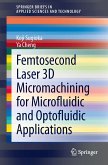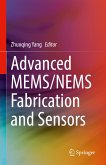This book highlights the current state of the art in magnetophoretic circuits and their use in the emerging field of single-cell analysis. This interdisciplinary topic involves many fields of science including cellular biology, drug screening, cancer research, personalized medicine, microfabrication, biomedical microdevices, and lab-on-a-chip. This book not only provides the required fundamental knowledge and background needed in magnetics and the circuit theory but also describes the idea of magnetophoretic circuits as well as the cutting-edge developed technologies. It provides a sufficient background in i) the required theory in magnetics, ii) SCAs in general, iii) the circuit theory, iv) the developed idea of the magnetophoretic circuits, v) the fabrication process and magnetic cell labeling techniques, vi) the magnetophoretic-based SCA tools, and vii) the bio-applications. Methods for performing simulations as well as designing, fabricating, and running experiments are explained.Author of the book is one of the inventors of some of the ideas and the author/co-author of some of the related articles in high-impact journals. The book appeals to the readers interested in clinical applications as well as the ones interested in its technical aspects. It is beneficial for researchers interested in the field of single-cell analysis from various disciplines including biomedical engineering, mechanical engineering, electrical engineering, materials science, and cellular biology.
Dieser Download kann aus rechtlichen Gründen nur mit Rechnungsadresse in A, B, BG, CY, CZ, D, DK, EW, E, FIN, F, GR, HR, H, IRL, I, LT, L, LR, M, NL, PL, P, R, S, SLO, SK ausgeliefert werden.









